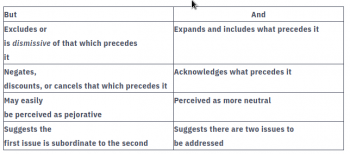Bible Highlighter
Well-Known Member
I agree with you 100% that everything we get from God is a gift, but not all gifts are the same. Last Christmas I got many gifts but they were all quite different.
Let's look at the context. I'm not ignoring it at all. In fact, context is what I believe builds my case. First of all, it must be understood that 1 Corinthians 12 is talking about spiritual matters. I know many translations use the word "gift" in 1 Cor 12:1 but that word is not in any Greek text and it causes misunderstanding about the rest of the chapter. The Greek word used in verse 1 is "pneumaticos" and it simple means spiritual matters.
What are these spiritual matters?
Now do verses 8-10 (which mention tongues) talk about gifts, administrations, operations, or manifestations? I'll just let it go at that.
- Gifts (v 4)
- Administrations (v 5)
- Operations (v6)
- Manifestations (v 7)
There are many benefits of speaking in tongues in the scriptures. All Christians have holy spirit and therefore are capable of not only tongues but of the other 8 as well (more on that in a minute). But when we say that tongues is a gift, it leads us to think that only a select few have that gift but most don't. That means most don't speak in tongues and therefore miss out on the many benefits tongues has for the believer.
Are we not in a spiritual battle? Of course we are. We don't wrestle with flesh and blood but with evil spirits in a world that itself is groaning for redemption (Rom 8:22). Speaking in tongues is the foundation upon which we build the rest of our offensive and defensive weapons. As Paul said, speaking tongues builds us up, edifies us. It builds us up to the point where we can be comfortable operating the other 8 manifestations. While tongues edifies the individual believer, interpretation of tongues and prophecy ediy the entire body of those present in the meeting. Would it not be a blessed thing to build up ourselves and others? Of course it would and God gave us all the ability to do just that.
John 14:12,
Verily, verily, I say unto you, He that believeth on me, the works that I do shall he do also; and greater [works] than these shall he do; because I go unto my Father.Compare the manifestations in 1 Cor 12:8-10 with the works Jesus did and it becomes apparent that Jesus did 7 of the 9 manifestations. We can either operate the same 7 manifestations or we can say the Bible is mistaken or, worse yet, outright lies to us. I am highly in favor of the former! :)
Jesus did not speak in tongues or interpret simply because those manifestations were not available until the day of Pentecost.
Paul said he was glad he spoke in tongues more than anybody else. He also said that he wishes all would speak in tongues. He correctly observed that not everybody spoke in tongues, but that in no way has to mean those who didn't couldn't. All Christians, having holy spirit, can and should become proficient in all 9 manifestations. The reason is simple; we need them in order to most effectually minister to others in need. I can see someone who is obviously suffering from who knows what. I just see they are suffering. But since I've built up myself by much speaking in tongues, I can ask God what is their problem and He'll give me a "word of knowledge" to let me know what is wrong. He will also give me "word of wisdom" so I know what to do. Maybe I'll then operate the manifestation of gifts of healing or maybe cast out a devil spirit. Or maybe I'll just speak in tongues quietly to myself, lifting that person to God. I don't know what's wrong with them, but my spirit knows spot on exactly what the problem is and it will intercede accordingly.
You correctly mentioned the importance of context. But there is a near context and there is a remote context. The remote context, i.e., the basic message of scripture, tells us God is love and wants all to be saved and come to a knowledge of the truth. If you look honestly at the nine manifestations it becomes apparent that those are precisely the tools God gave us in order to show the world His great love and care for all people. Operating outside of the nine manifestations is guess work at best and has limited value. Work through your spirit via the nine manifestations and perfect results are guaranteed every time.
It's not saying manifestations is a separate alien idea from gifts.
Verse 7 (the manifestation of the Spirit) picks up where verse 4 (diversities of gifts) left off.
Verse 5, and Verse 6 (differences of administrations, diversities of operations,) is describing two quick other examples of similar related things.
Verse 7 does not say “differences of manifestations” as continuing on the point of examples like verses 5-6 (differences of administrations, diversities of operations,).
This is where you are getting tripped up.
Last edited:




